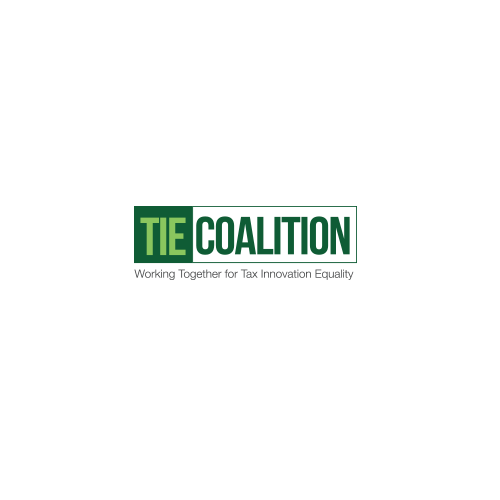New Coalition: Tax Reform Should Not Discriminate Against Innovative Companies Study Released Shows IP Fuels Growth in U.S. Output, Jobs, Income
WASHINGTON, June 24, 2013 – Companies that produce intangible property play a central role in driving U.S. growth, quality job growth and innovative products. This role will be even more important in the years ahead, according to a study released by the Tax Innovation Equality (TIE) Coalition titled “The Contribution of Intangible Property to the U.S. Economy.” Placing a disproportionate share of the tax burden on companies that develop intangible property, would disadvantage American industries responsible for 35 percent of U.S. GDP – as well as the 27 million people they directly employ in the U.S. and the 13 million outside jobs they support in the U.S.
“Policymakers must understand that intangible property has an enormous positive impact on American jobs and standards of living,” said Matthew Slaughter, the author of the study. “It’s important that the much needed comprehensive tax reform now being debated in Congress does not create disincentives for some of the most productive technology and biotechnology companies in our nation.”
The study was sponsored by the TIE Coalition, a group of U.S. trade associations and global companies urging Congress to move forward with comprehensive tax reform that ensures all industries are treated equally, including those that derive their income from the intangible products that fuel 21st Century growth. The TIE Coalition is comprised of hi-tech and biotechnology organizations that play a vital role in the U.S. economy and whose research and development helps to drive America’s leadership in innovation during an unprecedented era of global competition.
“We create the ideas that create jobs. Our coalition includes companies that helped start the digital revolution transforming the global economy, and others that develop medicines, improving the health of hundreds of millions of people around the world,” said Mark Nebergall, president of the Software Finance and Tax Executive Council (SoFTEC).
Coalition members are concerned about recent tax reform proposals that would treat income from intangible property differently from other types of income. A tax code that discourages companies that produce highly valued IP is dramatically out of step with the realities of 21st Century commerce.
Globally engaged companies, including TIE Coalition members, create the majority of America’s intangible property and rely on their global operations to fund research and development and drive future growth. The study also found that the benefits of intangible property are not just limited to the company that produces it. In fact, recent history shows that entirely new industries have sprung up from successful software and medical breakthroughs. Ensuring the continued growth of intangible property is critical to the competitiveness and continued economic growth of the United States.
The TIE Coalition strongly supports comprehensive tax reform that would move the U.S. to a competitive marketplace tax system coupled with a lower corporate tax rate, which would make the U.S. tax system more competitive with other developed nations. The U.S now has the highest corporate tax rate among Organisation for Economic Co-operation and Development (OECD) nations.
Visit www.TIECoalition.com to learn more about the TIE Coalition and the economic value of intangible property.
###
About the TIE Coalition
The Tax Innovation Equality (TIE) Coalition is comprised of U.S. trade associations and global companies that drive economic growth through the development of the innovative technologies and processes of the 21st Century. TIE Coalition members are urging Congress to move forward with comprehensive tax reform that does not discriminate against any particular industry or type of income – including income from intangible property, ensuring America will continue to remain a global economic leader. You can also follow the TIE Coalition on Twitter at www.twitter.com/tiecoalition.
